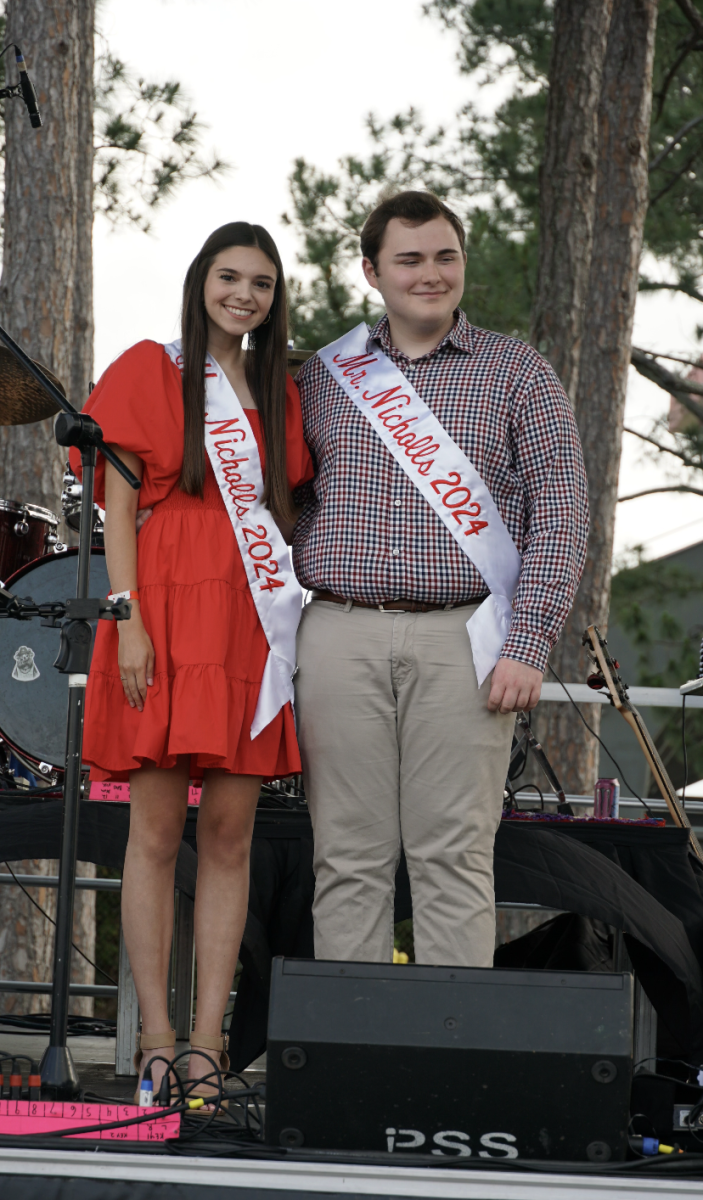As you turn the radio dial you hear a sax solo on an easy listening station, a deep bass line mixed with a techno beat and a jazzy piano in an R&B song.Everywhere in contemporary music you can hear the influence of Jazz, whether it is obvious or subtle.
With February being Black History Month, we are reminded not only of the civil rights struggles that black political leaders had to endure, but also the rich contributions from black artists, musicians and writers that have helped to shape American culture. Jazz is one of these contributions.
We can directly follow the genealogy of contemporary popular music back to Jazz. We can then trace Jazz back to folk songs of Africans who were slaves in the 19th century.
Those slave songs soon became the blues. Two distinct American musical forms sprung from the blues: Jazz, and (over a half a century later) Rock and Roll.
Another unique thing about Jazz is that its origins lie in Louisiana, or more specifically in the culural gumbo known as New Orleans.
When the architect Benjamin Henry Latrobe arrived in the already bustling town in 1819, he commented that he heard more tongues then there must have been at Babel.
It is in this melting pot that Jazz was born, with not only Africans from the southern slave trade, but also Native-Americans and the Creoles, descendants of French colonists and their African and Native-American mistresses.
They all had their own music and instruments which added to a more unique cultural mix than found elsewhere in developing America.
The earliest blues musicians wondered southern roads playing for pennies. The blues was the low-down, dirty music of the street, causing churchgoers to view it as the Devil’s music.
It is ironic that the twelve-bar blues and hymns of black baptist choirs formed the rhythms that would eventually evolve into Jazz.
One of the originators of Jazz in its pure form was teh cornetist Buddy Bolden, who was born in New Orleans in 1877.
Growing up, Bolden attended various churches. His motives were not religious however, but to get ideas and inspiration for his music. He loved to hear the church songs and then change them a little.
Beginning around 1905, Bolden and his band performed everything New Orleans audiences demanded: waltzes, polkas, rags, spirituals and blues.
They played all over town, at parades, tea dances, picnics, Jackson Hall, Perseverance Hall and Union Sons Hall (better known then as Funky Butt Hall).
Probably, this is where Buddy got the title for one of his much played pieces “Funky Butt,” which often had ad-libbed lyrics aimed at a local judge named J.J. Fogarty, who reportedly had a vendetta against Bolden and the boys.
His more proper standards were “Home Sweet Home,” which he played when it was time for everyone to go home, and “Don’t go away anybody,” which signaled that everyone should stay the whole night.
Due to the lack of recording technology, no known recording of Bolden exists. It is only from legends and commentary fellow New Orleans musicians of the time that we know Bolden had a powerful style, emotionally powerful, slow but with a strong rhythmic drive.
Unfortunately, the first time the papers mentioned Bolden, it was not for his enormous talent, but for having a paranoid delusion and breaking a water pitcher over his mother’s head.
Bolden had a mental disorder and had to spend the last 25 years of his life in an asylum, where he was unaware of the great developments of Jazz, the music he helped create.
Pianist and composer Jelly Roll Morton claimed to be the creator of Jazz in 1902. Of course, we now know this is false. Jazz was the result of a combination of influences and musicians.
However, his other pronoucement was true, and this is that New Orleans is the cradle of Jazz.
Morton was born in New Orleans in 1890; his mother was a Creole and his father was of Haitian decent. The first sound of the blues he heard was from his neighbor Mamie Desdoumes, who played the piano with just three fingers on her right hand.
Growing up, Morton sang and played instruments in spirituals. When he was older he ventured into Storyville, a large block town where prostitution and crime ran rampant.
In another inaccurate legend, Storyville is often pronounced the birthplace of Jazz, when in reality few bands actually played the clubs. Morton’s job was a piano player to set the mood at the local brothel.
The tips came, and Morton was doing so well he could afford custom made suits, a far cry from the poverty he was in before. He soon left the brothels and traveled across the United States, taking New Orleans’ music with him.
While he was not the originator of Jazz, as he claimed, he was the forms first theorist and composer, and was responsible for spreading the music across the country.
The next Jazz-great born in the Cresent City was none other than the legendary Louis Armstrong, not only one of the most well-known figures in Jazz, but in popular culture as well.
Holding the nicknames “Satchmo” and “Pops,” Armstrong had an easygoing demeanor, infectious grin and gravely voice that made fans everywhere feel happy. Musically, he was an extremely innnovative trumpet player whose improvisation taught America, and the world, to swing.
Armstrong was born Aug. 4, 1901 at 723 Jane Alley, a section of New Orleans so violent that it was called “the battlefield.”
He received his first musical training in a marching band at Colored Waif’s Home of boys, where he was confined for shooting blands into the air during New Years in 1913.
Soon after, Armstrong began to play in small clubs and parades around town. One was Funky Butt Hall where Bolden played. The violence was so bad that Armstrong had to pack a razor with his trumpet.
Soon Armstrong caught the attention of Joe Oliver, a member of Kid Ory’s band, the leading group in New Orleans at the time. When Oliver left town, Armstrong too his place as trumpet player in Ory’s band.
Soon Oliver invited Armstrong to Chicago to play second cornet in his Creole Jazz Band. Armstrong soon began recording, and the rest is history.
Armstrong’s move to Chicago symbolically signaled Jazz’s expansion outside of New Orleans.
Jazz was now larger than life, so there was no way one geographical location could hold it. It moved to Chicago and then to New York and soon to the rest of the U.S.
A long list of greats followed: Duke Ellington, Billie Holiday, Charlie Parker, Miles Davis and John Coltrane to name just a few. Jazz was now America’s music, yet the heart of it would always remain in New Orleans.


![Assistant coach Cody Livingston [#53] talking with pitcher Nico Saltaformaggio [#38] on the mound(5/12).](https://thenichollsworth.com/wp-content/uploads/2024/05/LivingstonNicoHuddle-vs-Lamar-1200x800.jpg)




